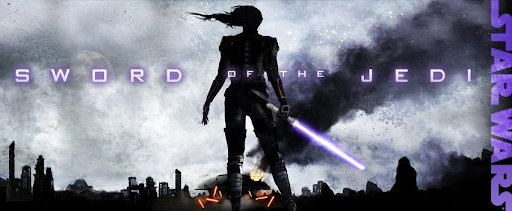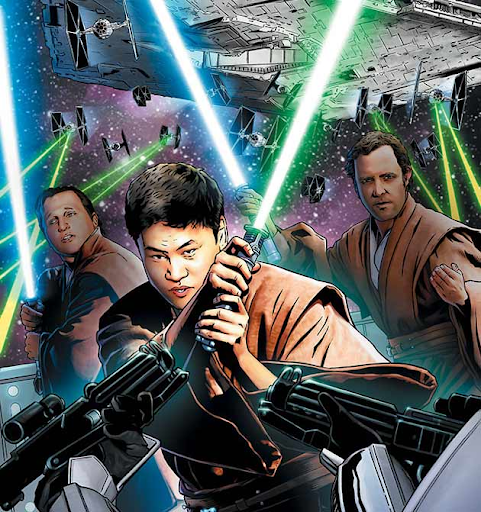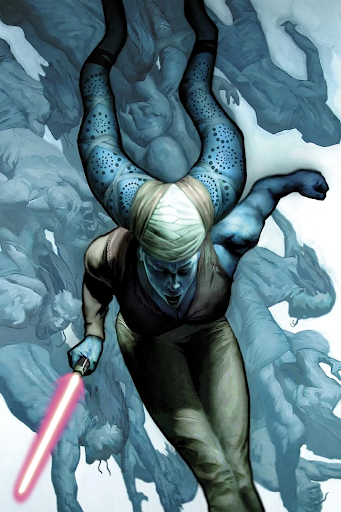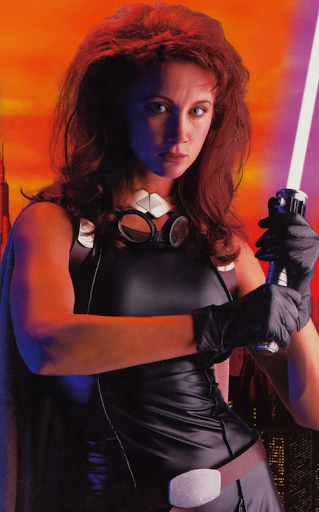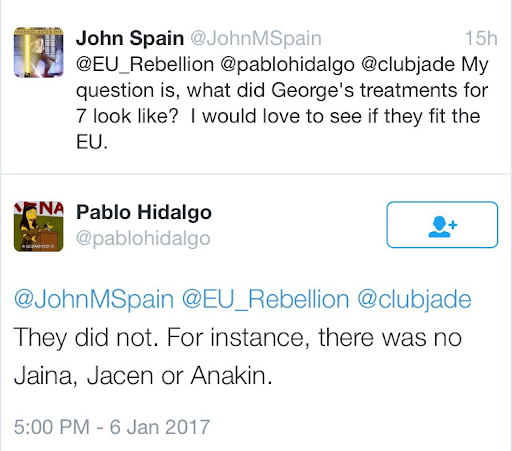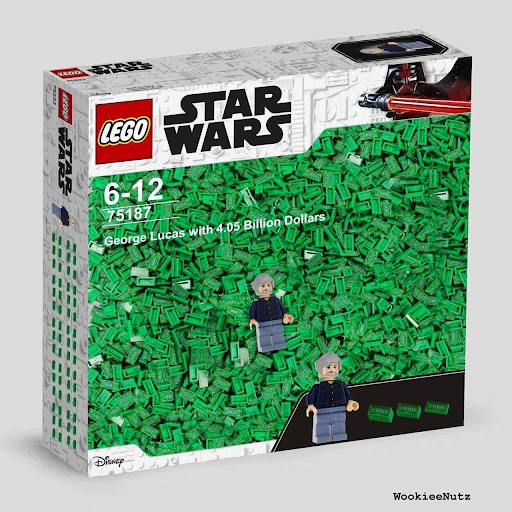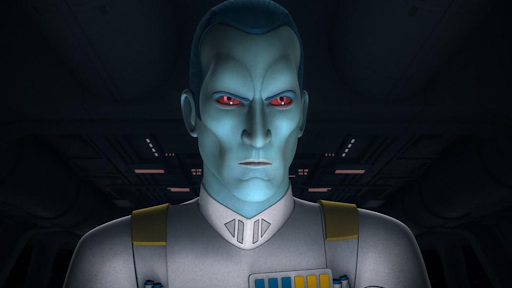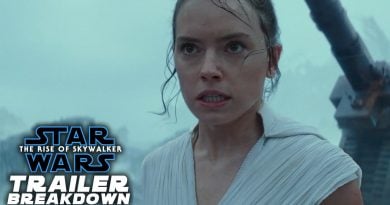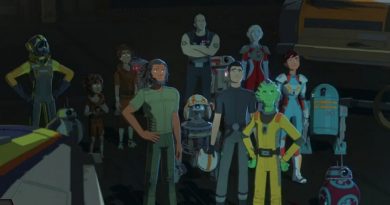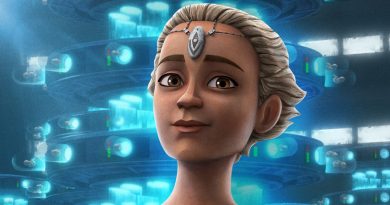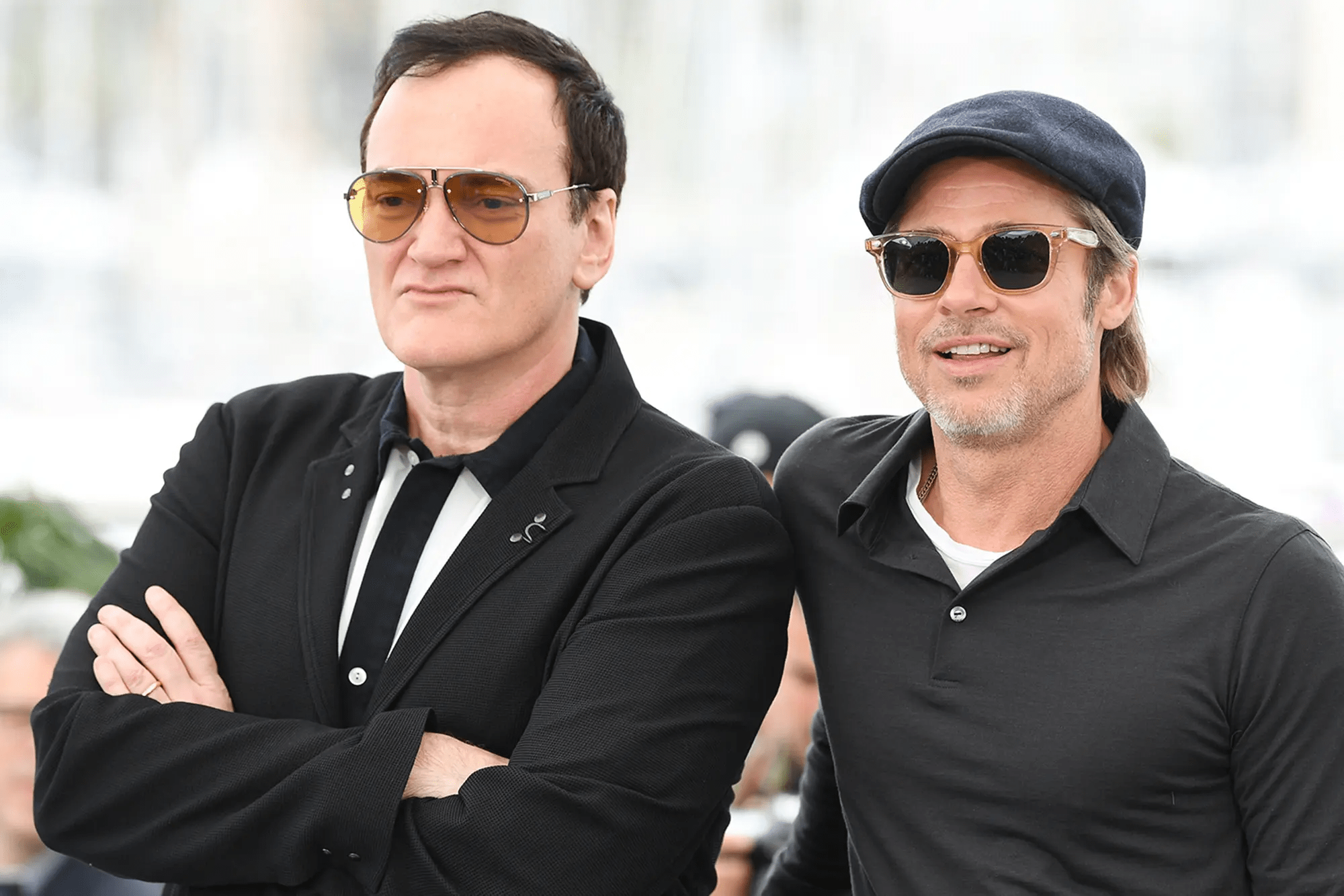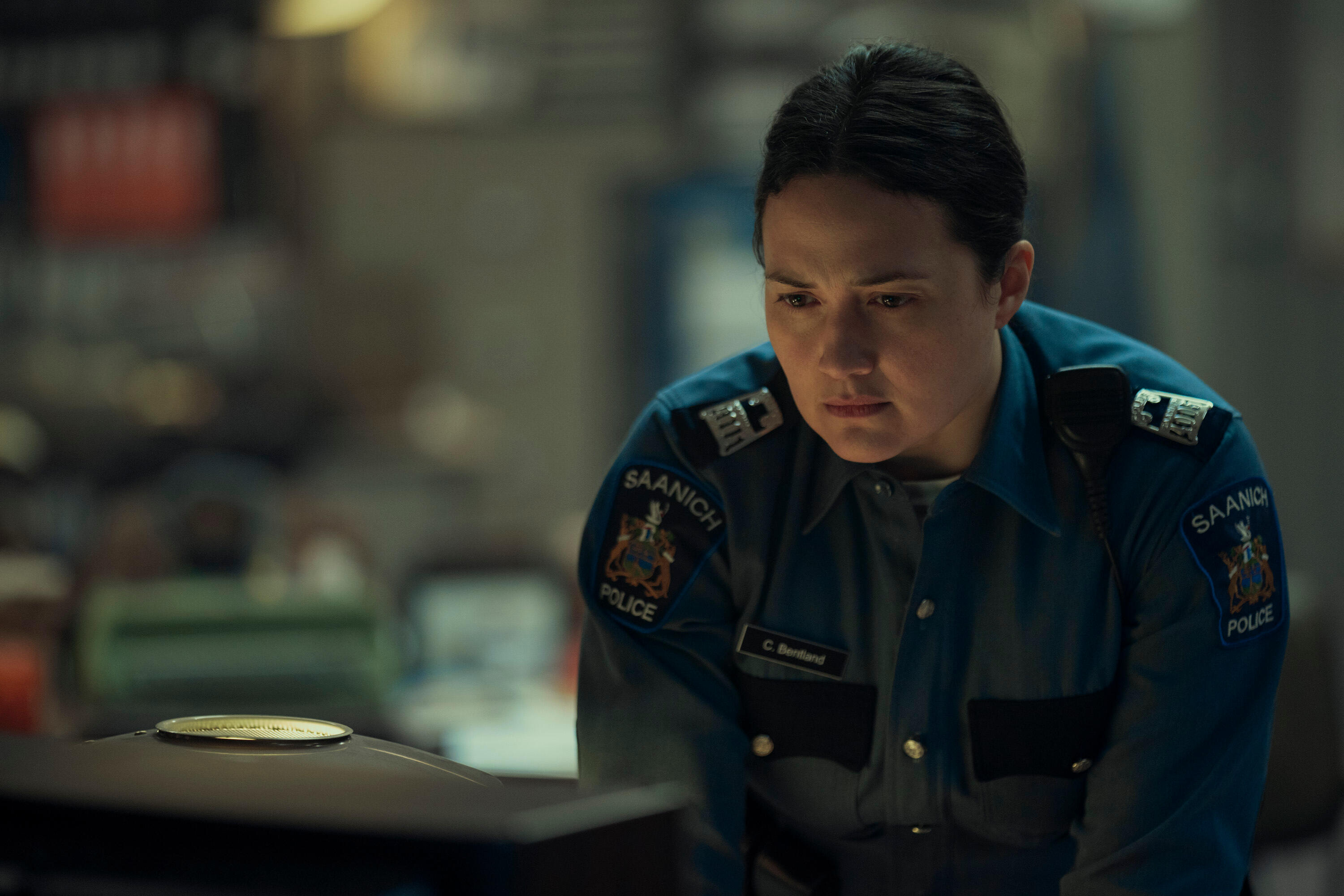Guest Editorial: Did George Lucas Consider the Expanded Universe Canon?
The following is a guest editorial by ForceWave-1139.
Ever since Marvel Comics’ Star Wars #7: New Planets, New Perils! (cover-dated January 1978) and Alan Dean Foster’s novel Splinter of the Mind’s Eye (1978), the licensing world of Star Wars expanded to cover all forms of media; novels, comics, cartoons, video games, radio dramas, and even a Holiday Special. The breadth of these original stories, all based on the world of George Lucas’ films, extended as far back as thousands of years before The Phantom Menace (with the Tales of the Jedi comics and Knights of the Old Republic video games), to over a hundred years after Return of the Jedi (the Legacy comics). Collectively, this collection of non-film Star Wars media became known as “the Expanded Universe.” Many elements from these licensed media would make their way into the prequels (Jedi Master Aayla Secura), the Special Editions of the original trilogy (Dash Rendar’s Outrider ship, flying above Mos Eisley), and The Clone Wars animated series (Dooku’s apprentice, Asajj Ventress). Many have argued that the success of Timothy Zahn’s trilogy of Star Wars novels (collectively known as The Thrawn Trilogy), thought of by many fans to be the spiritual “sequel trilogy” of its time, helped kickstart Star Wars’ return to relevance in the 90s, culminating with Lucas’ decision to finally return to the franchise with the prequel trilogy. In short, the importance of the Expanded Universe cannot be overstated in how it sustained the fandom during droughts of films.
So when, in 2012, Disney announced their purchase of Lucasfilm, and their plans to make more Star Wars movies, fans of the Expanded Universe feared that their beloved stories would be ignored by Disney’s upcoming films; a fear that came to pass in 2014, when Disney-Lucasfilm announced that future films will not be beholden to the stories told for over three decades (only adhering to the six films and The Clone Wars film and animated series). Many EU fans expressed great dismay over the decision, claiming that Disney had “thrown away decades worth of canon.”
Did Disney-Lucasfilm really “decanonize” the EU, though?
In the official press release, at no point does the phrase “the Expanded Universe is no longer canonical” ever appear. On the contrary, the only reference to the Expanded Universe’s prior canon status, was that it never held canonical weight in the first place:
“While Lucasfilm always strived to keep the stories created for the EU consistent with our film and television content as well as internally consistent, Lucas always made it clear that he was not beholden to the EU. He set the films he created as the canon. This includes the six Star Wars episodes, and the many hours of content he developed and produced in Star Wars: The Clone Wars. These stories are the immovable objects of Star Wars history, the characters and events to which all other tales must align.”
–“The Legendary Star Wars Expanded Universe Turns a New Page”, April 25th, 2014
Rather than announcing the decanonization of the EU (after all, you can’t “decanonize” what was never canon to begin with), Lucasfilm simply announced that the EU would be rebranded as Legends, and from then on, all novels, comic books, video games, and television shows will be on the same level of canon as the films and The Clone Wars.
The misunderstanding that “Disney decanonized the EU” seems to be the result of two factors; people getting their information from second-hand sources (rather than read the press release itself), and the long-standing myth that George Lucas himself gave tacit approval for the canonical status of the Expanded Universe.
The argument typically goes; Lucas set guidelines for what not to cover in licensed media (for example; prior to the prequels, authors weren’t allowed to write about Anakin Skywalker prior to becoming Darth Vader). Anything that fell within those guidelines thus received Lucas’ blessing as a canonical part of the Star Wars universe.
“Unlike other series like Marvel, DC, Star Trek or many others, each story worked with the others. There was no multi universe, no discontinuity. […] These [Expanded Universe] stories were guided by Lucas’ vision, authors paid to create these stories. […] They were not ‘fanfiction’ as some say and should not be dismissed as such.”
This view has been corroborated by many Lucasfilm employees (primarily in Lucas Licensing), which fans of the Expanded Universe have compiled in order to “fight back against the Disney Empire.”
“We’ve stuck to a very clear branding strategy for the past decade. This is Star Wars. Individual movies come and go, as do TV shows, video games, books. They all contribute to the lore of Star Wars, but in the end it is one saga and that saga is called Star Wars. We’ve wanted to send a clear message to our fans that everything we do is part of that overall saga.”
However, one Lucasfilm employee is very rarely quoted in the above compilation; George Lucas himself. Of the many quotes compiled to “arm [EU defenders] with facts”, George Lucas is only quoted twice; in a foreword to a reprinting of Splinter of the Mind’s Eye (where he expresses amazement in the fact that “so many gifted writers are contributing new stories to the Star Wars Saga”), and a foreword to “Monsters and Aliens from George Lucas” (where he doesn’t bring up the EU at all; the quote was about concept art and modeling for creatures described in film/television scripts).
In isolation, the quote from the Splinter foreword does appear to indicate that the various stories of the EU do indeed contribute to Lucas’ Star Wars Saga. Had this been the only thing he ever said about the subject, there would be no reason to cast doubt on any of the statements made by those who work in Lucas Licensing.
However, this was far from the only statement made by George Lucas about whether or not the EU fit into his conception of the Star Wars universe; Whenever he’s explicitly asked about his views on the EU, Lucas makes it clear that he views the Expanded Universe as separate from the one he created.
“There are two worlds here; There’s my world, which is the movies, and there’s this other world that has been created, which I say is the parallel universe—the licensing world of the books, games and comic books.”
– George Lucas, Cinescape, July 2001
“I don’t read that stuff. I haven’t read any of the novels. I don’t know anything about that world. That’s a different world than my world. But I do try to keep it consistent. The way I do it now is they have a Star Wars Encyclopedia. So if I come up with a name or something else, I look it up and see if it has already been used. When I said [other people] could make their own Star Wars stories, we decided that, like Star Trek, we would have two universes: My universe and then this other one. They try to make their universe as consistent with mine as possible, but obviously they get enthusiastic and want to go off in other directions.”
The “we” Lucas referred to in the Starlog interview likely refers to himself and Howard Roffman, President of Lucas Licensing from 1999 to 2012, as Lucas recounts here:
“Howard tries to be consistent but sometimes he goes off on tangents and it’s hard to hold him back. He once said to me that there are two Star Trek universes: there’s the TV show and then there’s all the spin-offs. He said that these were completely different and didn’t have anything to do with each other. So I said, ‘OK, go ahead.’”
– George Lucas, Total Film, May 2007
Keep in mind, this is the same Howard Roffman who had said that the books and games all contributed to the same Star Wars Saga! In private, he assured Lucas that, like Star Trek, the universes of the Expanded Universe and Lucas’ universe would be kept separate, yet publically, he’s saying that the universes are one and the same. Clearly, there’s some deception taking place, either against Lucas, or against fans.
Leland Chee, the Keeper of the Holocron (Star Wars internal encyclopedia manager), who was previously adamant that there was no “parallel Star Wars universes” (in direct contradiction to Lucas’ statements), later conceded that George Lucas’ canon was separate from what he was overseeing with the licensing world.
“[Lucas’] canon – and when I say ‘his canon’, I’m talking about what he was doing in the films and what he was doing in The Clone Wars – was hugely important. But what we were doing in the books really wasn’t on his radar.”
While many EU fans cite Lucas’ involvement with the EU as evidence for his canonical support, these claims are largely exaggerated, with Chee stating that Lucas “for the most part, was hands off.”
Despite being the moderator of all Star Wars lore, and having once argued in favor of the EU being part of Lucas’ world, Leland did not work very closely with Lucas himself, unlike Dave Filoni (supervising director on The Clone Wars, and Lucas’ padawan learner):
“I did not have direct contact with George about Star Wars continuity. Dave Filoni, who worked on Clone Wars, definitely did. So for me, the spirit of George’s work is what’s in the films, and it doesn’t go too far beyond that.”
Thus, Dave Filoni is better equipped to relay Lucas’ true feelings about the EU:
“For me and my training here at Lucasfilm, working with George, he and I always thought the Expanded Universe was just that. It was an expanded universe. Basically it’s stories that are really fun and really exciting, but they’re a view on Star Wars, not necessarily canon to him.That was the way it was from the day I walked into Lucasfilm with him all through Clone Wars, everything we worked on, he felt the Clone Wars series and his movies were what was actually the reality of it all, the canon, then there was everything else. So it wasn’t a big dynamic shift for me mentally when there was this big announcement saying the EU is now Legends. I’m like, ‘Okay, well, it’s kind of the same thing to me because that the way I work.’”
A conspiracy theory, common among EU purists, claims that the reason Lucasfilm employees, such as Leland Chee, began backtracking from their previous assertions (that Lucas’ world and the licensing world were one and the same) is due to a deliberate misinformation campaign by Disney and Kathleen Kennedy, to sweep the EU under the rug.
However, weeks before the Disney deal was announced, and before Kathleen Kennedy officially became President of Lucasfilm, Del Rey published “The Essential Reader’s Companion”, a reference guide that summarized all Expanded Universe books in chronological order. In it, author Pablo Hidalgo reiterated what Lucas had been saying all along:
“The most definitive canon of the Star Wars universe is encompassed by the feature films and television productions in which George Lucas is directly involved. The movies and the Clone Wars television series are what he and his handpicked writers reference when adding cinematic adventures to the Star Wars oeuvre. But Lucas allows for an Expanded Universe that exists parallel to the one he directly oversees. […] Though these [Expanded Universe] stories may get his stamp of approval, they don’t enter his canon unless they are depicted cinematically in one of his projects.”
-Pablo Hidalgo, Star Wars: The Essential Reader’s Companion, October 2nd, 2012
While it’s true that Lucas included many elements from the EU in the films and the Clone Wars (the city planet of Coruscant, featured prominently in the prequels, was taken from Timothy Zahn’s Thrawn Trilogy), it’s also true that Lucas ignored large swaths of what the EU established (the very same Thrawn Trilogy established that the clones were fighting against the Republic in the Clone Wars). Jedi Master Even Piel died during the Season 3 Clone Wars episode “Citadel Rescue” (2011), despite appearing in the post-EPIII novel Coruscant Nights I: Jedi Twilight (2008). Most egregiously, The Clone Wars’ portrayal of the planet Mandalore was wildly different from what Karen Traviss had previously established in her then-ongoing Republic/Imperial Commando series of novels, leading to the series’ cancellation, as well as outcry from fans.
Whereas Lucas had been very explicit in how the licensing world of the EU was a “parallel universe” from his film universe, George Lucas took a very different attitude when it came to The Clone Wars animated series:
“This is Star Wars, and I don’t make a distinction between [The Clone Wars] series and the films.”
The most recent quote EU fans have used to defend the canonical status of licensed media, was George stating that his idea for the sequel trilogy would have followed the grandchildren of Darth Vader, similar to the books. However, it’s a massive stretch to claim that Lucas simply acknowledging a similarity between his sequel trilogy ideas and the EU, is confirmation that he considered the entire EU canonical all along. In fact, in the previously referenced Total Film interview, Lucas explicitly ruled out several EU storylines from his idea for what happened after Return of the Jedi:
“I’ve left pretty explicit instructions for there not to be any more features. There will definitely be no Episodes VII-IX. That’s because there isn’t any story. I mean, I never thought of anything. And now there have been novels about the events after Episode VI, which isn’t at all what I would have done with it. The Star Wars story is really the tragedy of Darth Vader. That is the story. Once Vader dies, he doesn’t come back to life, the Emperor doesn’t get cloned and Luke doesn’t get married…”
(Funnily enough, another EU fan-site’s quote collection acknowledged the above Total Film quote… but it ended the quote with “and now there have been novels about the events after Episode VI”, completely leaving out how Lucas said that those novels don’t reflect how he would’ve continued the story after Episode VI. Beware of deliberate deception like this from EU fundamentalists.)
In the Expanded Universe, Palpatine is brought back to life through possessing clone bodies (Dark Empire), and Luke married Mara Jade (Union), a character whom Lucas especially hated.
“George couldn’t stand Mara Jade. They went out and got some sort of person who looked like she had stepped out of a Cosmopolitan magazine to be the model for Mara, and he just thought the whole thing was so not Star Wars, and not his vision for Star Wars. […] And also she married Luke, and he says ‘Jedi don’t marry.’ So for him, that was important.”
Of course, since conducting the Total Film interview, Lucas had decided that Darth Vader’s death was no longer the ending of the story; He began writing his own treatments for the sequel trilogy prior to selling Lucasfilm to Disney in 2012. Although his treatments weren’t used, ideas from it were recycled for the films we saw in theaters, and he was consulted about the return of Palpatine for The Rise of Skywalker (though we can safely rule out cloning as a potential method for his return). One idea brought over from Lucas’ treatment was that, much like Jacen Solo from the Expanded Universe, the son of Han and Leia would have turned to the Dark Side.
“The son falling to the dark side was always in the mix. The movies just ended up having it already an established fact. […] The Jedi Killer morphed from Talon corrupting the son to becoming the son.”
Yet in Lucas’ version, the son would have been seduced by Talon, not Lumiya (Jacen’s Sith Master). Furthermore, Jacen (and his brother) had already died in the novels; the only remaining Solo child was Jaina Solo, Han and Leia’s daughter. In short; whether George Lucas or Kathleen Kennedy was in charge, the sequel trilogy was still going to ignore the EU.
So why did George Lucas allow the Expanded Universe to continue on, if he never accepted it as canonical?
According to J.W. Rinzler, the answer was pretty straightforward; money!
“Licensing, starting after Episode I, just became this juggernaut that was making just, truck loads and truck loads of money. So, you don’t bother licensing! :laughs:”
–J.W. Rinzler, interviewed for SWNN’s “The Resistance Broadcast”
Although Lucas could have taken a more hands-on approach with licensed media, to ensure it was more consistent with his vision for Star Wars (as opposed to allowing something like Mara Jade, and her marriage to Luke, happen), Rinzler explained that upholding the sanctity of the licensed media simply wasn’t a priority for him.
“George had bigger fish to fry. He was trying to change filmmaking with digital technology. He wasn’t going to get involved in the minutiae of the Expanded Universe. He, quite literally, had better things to do.”
–J.W. Rinzler, interviewed for SWNN’s “The Resistance Broadcast”
Perhaps the business of licensed media explains the contrast between what Howard Roffman privately assured Lucas (the film universe and the licensed universe will be kept separate, ala Star Trek), and what Roffman told the public (the film universe and licensing universe are one and the same). Fans would be less willing to invest so much time and money in media that wasn’t an authentic part of the Star Wars storyline; so, Lucas Licensing promoted the falsehood that the novels, comics, and games were all legitimate stories that took place within George Lucas’ film universe, all while Lucas acted on his own accord, picking and choosing aspects of the EU he likes, and overwriting whatever was in his way. Whether Lucas was unaware of this deception, or if he allowed it to occur for the sake of licensing sales, is unknown.
After George Lucas retired and named Kathleen Kennedy as his successor, it was decided to finally do away with Lucas Licensing’s facade, and turn George Lucas’ opinion of the EU into official policy. With Lucas no longer with the company, the newly formulated Lucasfilm Story Group had the opportunity to start from scratch and coordinate all licensed media, so that every novel, comic, and game held the same level of canonical status as the films and TV shows. Just as Lucas had done previously, the Story Group would continue to incorporate elements from the EU into the proper canon, such as fan-favorite character Grand Admiral Thrawn.
Ultimately, Disney-Lucasfilm is taking the blame for simply acknowledging a truth that Lucas himself claimed was always the case, and Lucas Licensing had previously tried to overlook or downplay. It was a PR Gordian knot that was impossible to untangle without causing controversy; one which Lucas left his successor, Kathleen Kennedy, to deal with. He had his fill of fan-fueled controversy.
Of course, whether or not a work is “canonical” should have no bearing on whether it’s enjoyable as a piece of Star Wars-inspired media. Knights of the Old Republic remains a phenomenal game with a rich story, even if it didn’t really take place thousands of years before The Phantom Menace. Genndy Tartakovsky’s 2D animated Clone Wars microseries is a cult favorite among fans, due to its stellar animation and visceral action sequences. On a non-Star Wars related note, some of the best superhero comics ever written – Batman: The Dark Knight Returns, All*Star Superman, and Kingdom Come – are all non-canonical to their heroes’ respective histories.
The goal of any form of entertainment should be to enjoy ourselves; if a story isn’t worth reading unless it’s part of a larger universe, then the story simply wasn’t that good in the first place.
Written by:
ForceWave-1139 has adored the Star Wars franchise since he was a small child. He previously wrote another Guest Editorial for Star Wars News Net, and has a young YouTube channel focused on Star Wars analysis, satire, and a strange affinity towards retro futuristic aesthetics.
Founder of SWNN, MNN and The Cantina forums.
Born on April 24, 1980.


